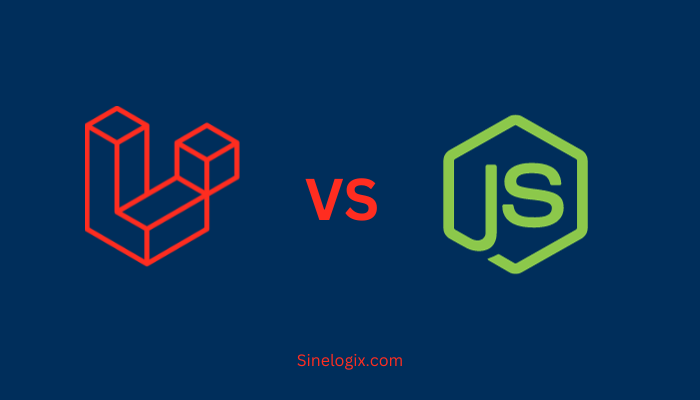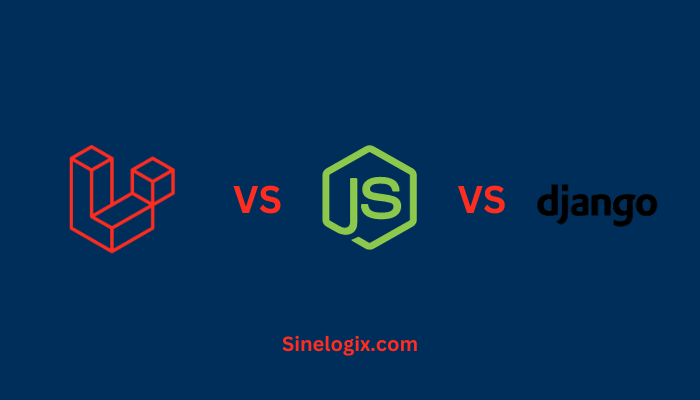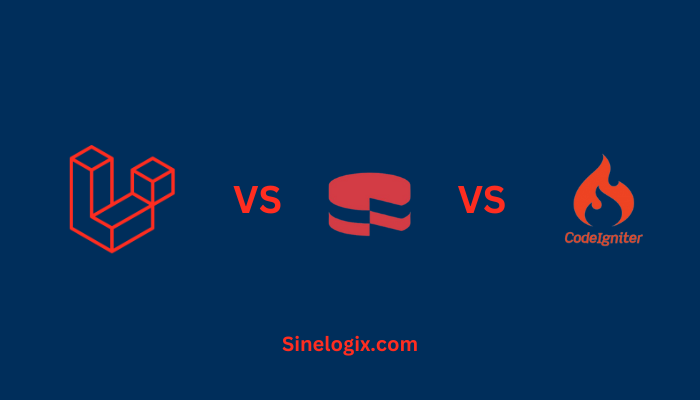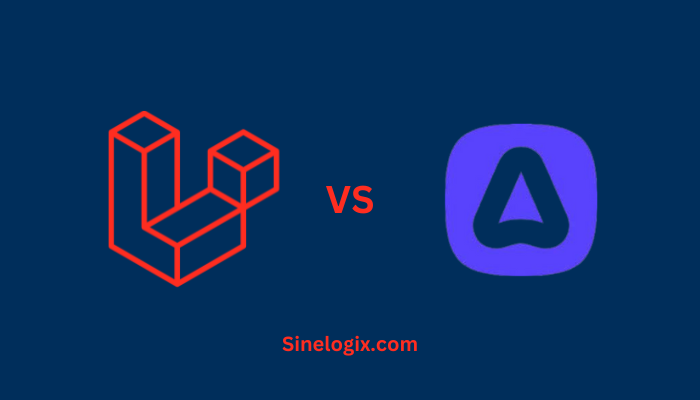In the realm of web development, choosing the right technology stack is crucial, and the decision between a PHP framework like Laravel and a runtime environment like Node.js can significantly impact project outcomes.
This in-depth analysis aims to dissect the nuances of Laravel and Node.js, providing developers with insights to make informed choices based on their project requirements.
Features
Laravel and Node.js represent different paradigms in web development, each with its unique set of features.
Laravel, a PHP framework, is celebrated for its elegant syntax and developer-friendly experience. It offers an expressive ORM (Object-Relational Mapping) known as Eloquent, a powerful templating engine named Blade, and a convenient query builder. Laravel follows the convention over configuration principle, reducing the need for developers to make numerous decisions.
Node.js, on the other hand, is not a framework but a runtime environment for executing JavaScript on the server side. It utilizes an event-driven, non-blocking I/O model, making it highly efficient for handling concurrent connections. Node.js is often used with frameworks like Express.js to build scalable and real-time applications.
Market Usage Statistics
Analyzing the market usage statistics of Laravel and Node.js provides insights into their real-world adoption. Laravel, as a PHP framework, has gained widespread popularity, particularly in the startup and mid-sized project space. Its vibrant community and rich ecosystem of packages available through Composer contribute to its success.
Node.js, with its focus on building scalable network applications, has also seen widespread adoption, especially in applications requiring real-time functionality. Its non-blocking, event-driven architecture makes it suitable for handling a large number of simultaneous connections.
Popularity Over the Years
Exploring the historical popularity of Laravel and Node.js unveils insights into their evolution and sustained relevance. Laravel has witnessed a meteoric rise in popularity since its inception, becoming one of the most sought-after PHP frameworks. Its commitment to modern development practices and a focus on developer experience contribute to its widespread adoption.
Node.js, known for its efficiency and scalability, has gained popularity for building fast and scalable network applications. Its growth has been steady, with a significant impact on the development of real-time applications.
Pros and Cons of Laravel and NodeJs
To make informed decisions, developers must evaluate the strengths and weaknesses of each technology.
Laravel’s Pros:
- Elegant syntax and developer-friendly features.
- Large and active community with extensive documentation.
- Rich ecosystem of packages available through Composer.
- Convention over configuration principle for streamlined development.
Laravel’s Cons:
- May not be as suitable for large, enterprise-level projects with complex requirements.
- Convention over configuration may limit flexibility in certain scenarios.
Node.js’s Pros:
- Efficient and scalable for handling concurrent connections.
- Non-blocking, event-driven architecture for high-performance applications.
- Unified language (JavaScript) for both client and server-side development.
- Large and growing community with a vast selection of libraries and modules.
Node.js’s Cons:
- Callback hell (nested callbacks) can make code harder to read and maintain.
- Single-threaded nature may pose challenges for CPU-intensive tasks.
- Learning curve for developers not familiar with asynchronous programming.
Applications
Understanding the applications of Laravel and Node.js is crucial for choosing the right technology for a given project.
Laravel Applications:
- Content management systems (CMS).
- E-commerce platforms.
- Small to medium-sized web applications.
- Projects where rapid development is a priority.
Node.js Applications:
- Real-time applications (chat applications, gaming servers).
- Streaming services.
- APIs and microservices.
- Scalable network applications.
Laravel Vs Node.js: A Detailed Comparison
Similarities and Differences
While Laravel and Node.js are used for web development, they differ significantly in their design philosophies and approaches.
Similarities:
- Both are popular choices for building web applications.
- Have active communities contributing to their ecosystems.
- Embrace modern development practices.
Differences:
- Laravel is a PHP framework, emphasizing simplicity and convention over configuration.
- Node.js is a runtime environment using JavaScript, known for its efficiency and scalability.
- Laravel’s ecosystem is larger and more diverse, catering to a wider range of project sizes and complexities.
- Node.js excels in building scalable, real-time applications with its non-blocking, event-driven architecture.
Laravel Vs Node.js: Which Should You Choose?
Choosing between Laravel and Node.js depends on the specific requirements of a project, the development team’s expertise, and the development goals.
Laravel is Ideal for:
- Rapid application development.
- Startups and smaller teams.
- Projects where convention over configuration is advantageous.
Node.js is Ideal for:
- Building scalable and real-time applications.
- Projects with a focus on high-performance and handling concurrent connections.
- Developers comfortable with JavaScript for both client and server-side development.
Alternatives of Laravel and Node.js
While Laravel and Node.js are popular choices, exploring alternatives can provide developers with additional options tailored to specific project needs.
Express.js (Node.js):
- Minimalist web application framework for Node.js.
- Ideal for building APIs and single-page applications.
Symfony (PHP):
- Suitable for large-scale projects with a modular and flexible architecture.
- Ideal for developers comfortable with a configuration-centric approach.
Ruby on Rails:
- A Ruby-based framework known for convention over configuration and rapid development.
- Suitable for projects where the Ruby language is preferred.
Related Articles:
Conclusion
In conclusion, the choice between Laravel and Node.js is pivotal, requiring careful consideration of various factors. Both technologies have their strengths and weaknesses, and the right choice depends on the specific needs of the project.
Laravel excels in rapid application development and is well-suited for startups and smaller teams. Node.js, with its efficiency and scalability, is an excellent choice for projects requiring real-time capabilities and handling concurrent connections.




